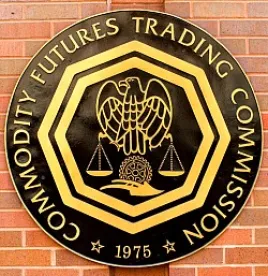On August 21, 2018, the Commodity Futures Trading Commission (“CFTC”) adopted rule amendments that modify the requirements for Chief Compliance Officers (“CCO”) of swap dealers (“SD”), major swap participants (“MSP”) and futures commission merchants (“FCM”). SDs and FCMs should review these rules in detail in order to assess the changes they will have to make to their compliance program before the rule is effective. While the amendments do not disturb the CFTC’s substituted compliance determinations, financial institutions taking substituted compliance for Chief Compliance Officers will still need to review and implement changes to their procedures because the rule impacts the annual report these institutions are still required to file with the CFTC.
The amendments clarify and, in most cases, narrow the scope of a CCO’s obligations. For example, the amendments make clear that a CCO’s obligations under CFTC regulations are specific to the registrant’s business as a SD, MSP, or FCM. The amendments also add materiality qualifiers to certain of the obligations of a CCO. For example, 17 C.F.R. § 3.3(d)(2) currently requires that a CCO, in consultation with senior management, take reasonable steps to resolve “any conflicts of interest that may arise.” As amended, the rule will require that the CCO, in consultation with senior management, take reasonable steps to resolve “material conflicts of interest relating to the registrant’s business as a” SD, MSP or FCM. (emphasis added).
The amendments will also change the CCO’s obligations for establishing policies and procedures for addressing noncompliance issues, under 17 C.F.R. § 3.3(d)(4) by:
-
Clarifying that the CCO’s responsibility for establishing these policies and procedures is limited to taking reasonable steps to ensure the registrant enacts the policies and procedures, and that the CCO is not personally responsible for establishing the policies and procedures;
-
Removing the requirement that senior management or the board of directors be consulted on the policies and procedures; and
-
Clarifying that the policies and procedures should address remediation of noncompliance issues discovered through any means, and not just those identified specifically by the rule (i.e. compliance office review, look-back, internal or external audit finding, self-reported error or validated complaint).
The amendments will also modify the CCO’s obligations with regard to the CCO annual report. The amendments will require that the report be provided to the registrant’s audit committee at its first scheduled meeting after the report is furnished to the CFTC, and further requires that this meeting take place within 90 days from the date it is furnished to the CFTC. The amendments also eliminate the express requirement that the report assess the effectiveness of the compliance program with respect to each regulatory requirement, in favor of a more holistic assessment of the effectiveness of the compliance program. Finally, the amendments allow the CCO to add a materiality qualifier to the CCO certification, so that they are certifying the information contained in the report is accurate and complete “in all material respects.”
Chairman Christopher Giancarlo commented on the amended rule as follows:
As part of the CFTC’s Project Kiss efforts, this final rule will streamline and clarify a Chief Compliance Officer’s…obligations, as well as harmonize certain provisions with the Securities and Exchange Commission’s (SEC) rules…The rule continues to impose a duty on CCOs to resolve matters but within the practical limits of their position at the CFTC-registered entity…[and] reduces the burdens associated with the review, which will allow the CCO to devote more time and resources to compliance activities at the registrant. In addition, further harmonizing definitions and CCO duties of dual CFTC-SEC registrants should improve efficiency and further reduce the burdens on CCOs.
The CFTC has been more active in recent weeks with regard to regulatory changes. The amendments to the rule are consistent with Chairman Giancarlo’s explanation that he is not seeking a wholesale repeal of the rules enacted under Dodd-Frank, but instead, adjusting them as necessary “to address flaws, recalibrate imprecision and optimize” them with the benefit of several years of real-world experience with the rules. It is anticipated that we will see more Project KISS and other changes in the coming months.





 />i
/>i

